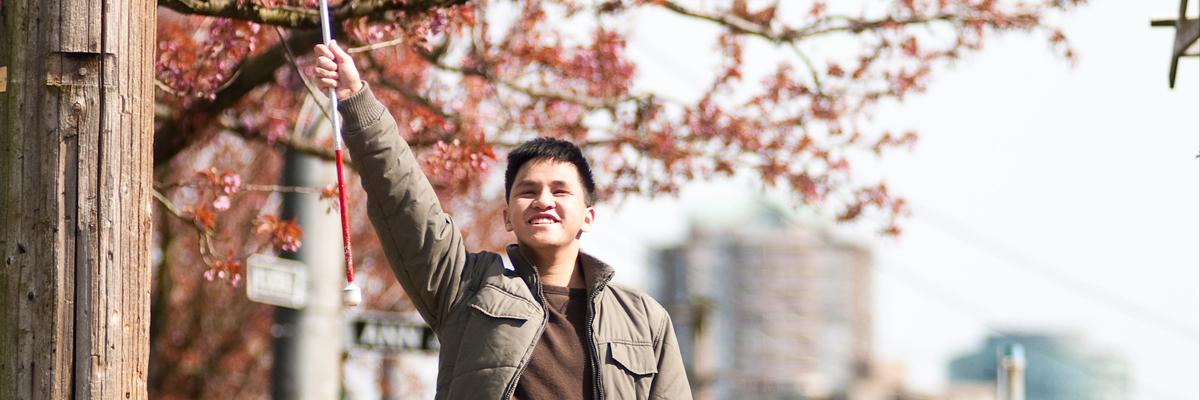by John Rafferty and Diane Bergeron
Bill C-81 is now law. After receiving royal assent on June 21, the Act to Ensure a Barrier-Free Canada – or the Accessible Canada Act – will now proactively eliminate and prevent barriers and ensure greater opportunities for persons with disabilities. It will require the Government of Canada and organizations under federal jurisdiction to ensure that public spaces, workplaces, employment program services and information be accessible to everyone.
On behalf of the CNIB Foundation and the hundreds of Canadians with sight loss who provided thoughts and insights during the legislation's consultation process, we are all exhausted and elated.
This process was challenging. It sparked awesome debate not only for people in Canada's sight loss community, but people in the disability community as a whole. This has been some of the most important and challenging advocacy work in modern times, compared to years ago when the community was fighting for the word “disability” to be included in the Charter of Rights and Freedoms.
People living with sight loss often experience barriers that prevent them from participating fully in society – barriers in buildings, transportation, technology, but mostly in other people’s attitudes and perceptions of what people with sight loss can do.
Governments, too, have caused barriers to full participation in society. However, now that the Accessible Canada Act has become law, Canadians with sight loss and other disabilities will begin experiencing more inclusive and accessible daily lives – and for that, we are truly thankful.
We would like to recognize the immense work and advocacy of the sight loss community throughout the entirety of this process. From when Minister Carla Qualtrough, a Canadian living with sight loss, was sworn in as the Minister of Sport and Persons with Disabilities, to disability community advocates calling and sending strong messages to members of parliament urging for timely passage, the sight loss community has been present and heard.
With more than 100 years of experience advocating for the rights of Canadians who are blind or partially sighted, the CNIB Foundation surveyed people with sight loss about their thoughts, feelings and criticisms of the accessibility legislation. Their responses made up our Foundation’s recommendations to members of parliament and senators. Canada's sight loss community was present when the federal government and disability organizations were consulting to build C-81, providing their insights and needs for fully inclusive accessibility legislation.
The fight for an Accessible Canada Act has caused members of the sight loss community, disability community and CNIB to have important debates about what is best for our society. Is there more that can be done? Absolutely. But at this point in time, the passing of this historic legislation will have a positive effect on millions of Canadians living with a disability – 1.5 million of whom are blind or partially sighted.
Let's celebrate. The real work begins now.
John Rafferty is the CNIB Foundation’s President and CEO. Diane Bergeron is the CNIB Foundation's Vice President of Engagement and International Affairs, and was diagnosed with retinitis pigmentosa when she was five and lost all of her sight by the age of 30.
